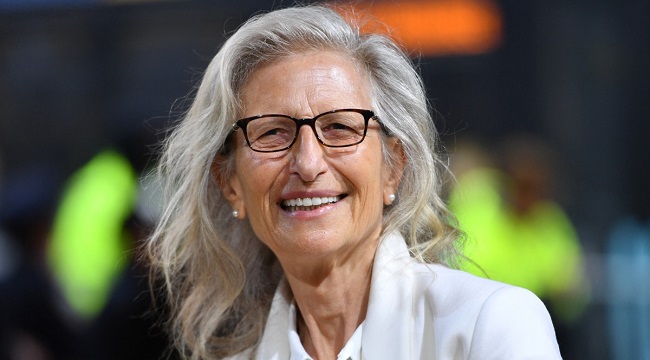Photographer to the stars Annie Leibovitz, inducted into the French Academy of Fine Arts on Wednesday, said that AI was not a threat to her trade — just another artistic tool.
Leibovitz is arguably the world’s most famous living photographer — thanks in large part to the iconic figures she has snapped in her 50-year career.
Rare is the celebrity who has not been in front of her lens: from a naked John Lennon embracing his wife Yoko Ono on a bed (just hours before he was shot dead) to a pregnant (and also naked) Demi Moore, to world leaders such as Queen Elizabeth, Barack Obama and Emmanuel Macron — and hundreds of celebrities in-between.
Many see photography as threatened by the emergence of artificial intelligence tools that can generate images from simple text prompts.
But Leibovitz just sees new opportunities.
“That doesn’t worry me at all,” she told AFP.
“With each technological progress, there are hesitations and concerns. You just have to take the plunge and learn how to use it.”
She says AI-generated images are no less authentic than photography.
“Photography itself is not really real… I like to use PhotoShop. I use all the tools available.”
Even deciding how to frame a shot implies “editing and control on some level,” she added.
– ‘Quite an honour’ –
Leibovitz is being inducted as a foreign associate member of the French Academy of Fine Arts in a ceremony at the Institute of France on Wednesday.
It is her long-time collaborator, Vogue boss Anna Wintour, who will present her with the ceremonial sword.
Leibovitz began her career in 1970 with Rolling Stone magazine. As well as lots of rock’n’roll shots, she also covered many political assignments.
Her photo of President Richard Nixon leaving the White House by helicopter after resigning in 1972 went around the world.
In the 1980s, she moved to Conde Nast where her work for Vanity Fair and Vogue made her a huge name in celebrity and fashion photography.
She said it was “quite an honour” to be inducted into the academy.
“But it’s a bigger honour for photography,” she added, recalling that it took until 2004 for the first photographer to join the academy, which is more than 200 years old.
“I like to be behind the camera, not in front,” Leibovitz said.
“But you realise at a certain point, when you have children as well, that you need to step up and be there for the next generation of artists and photographers.”
The banks of the Seine housing the Institut de France bring back memories for her.
“When I was a photography student, Cartier Bresson was one of my heroes,” she said of French pioneering photographer Henri Cartier-Bresson.
“So to be here within steps of the walking bridge that he liked to photograph, the Pont Neuf, is quite something.”
Paris was also one of the homes she shared with her long-term partner, writer Susan Sontag, prior to her death in 2004.
“We used to walk by here all the time,” Leibovitz said of the Institute. “I didn’t know what it was. I mean, Susan probably did, but I didn’t.”

